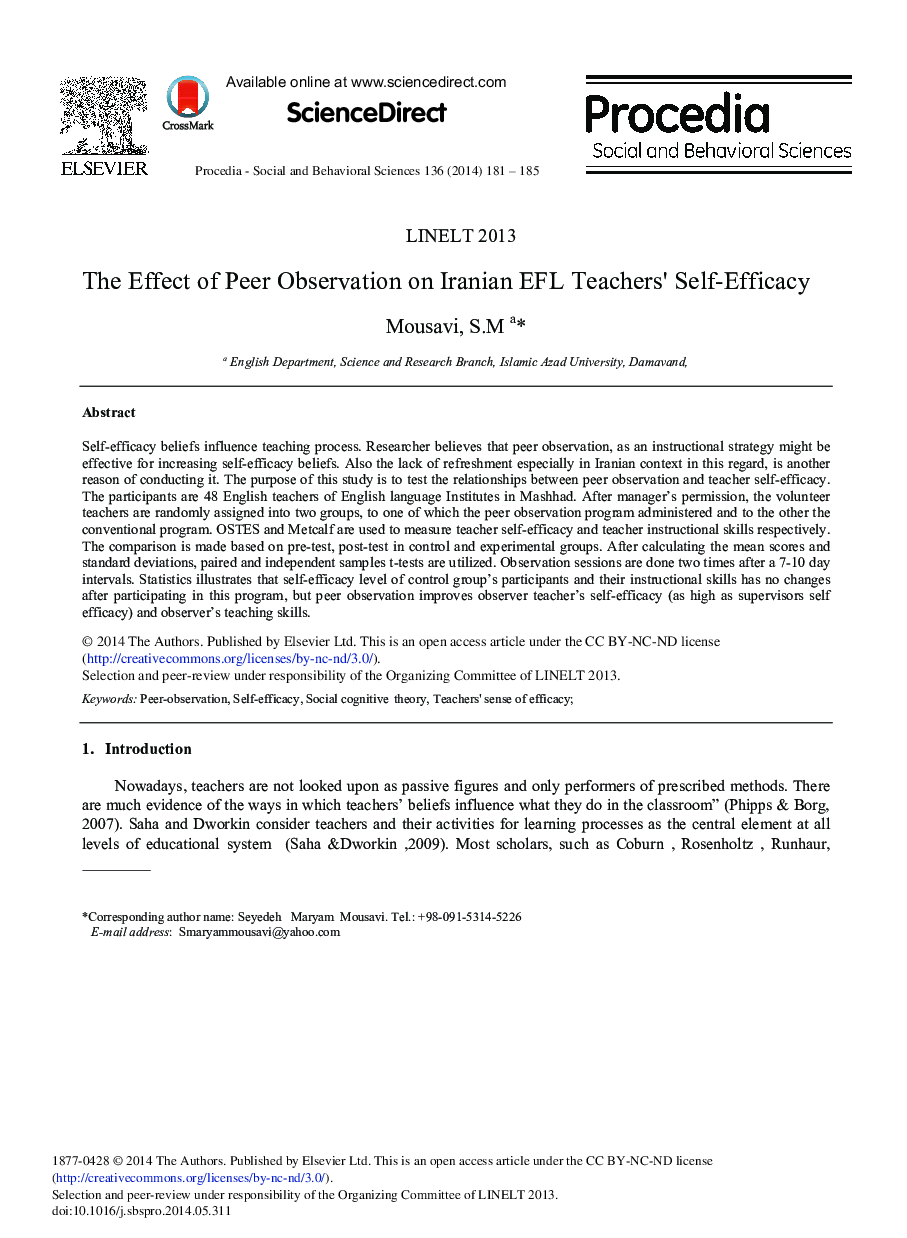| Article ID | Journal | Published Year | Pages | File Type |
|---|---|---|---|---|
| 1113543 | Procedia - Social and Behavioral Sciences | 2014 | 5 Pages |
Self-efficacy beliefs influence teaching process. Researcher believes that peer observation, as an instructional strategy might be effective for increasing self-efficacy beliefs. Also the lack of refreshment especially in Iranian context in this regard, is another reason of conducting it. The purpose of this study is to test the relationships between peer observation and teacher self-efficacy. The participants are 48 English teachers of English language Institutes in Mashhad. After manager's permission, the volunteer teachers are randomly assigned into two groups, to one of which the peer observation program administered and to the other the conventional program. OSTES and Metcalf are used to measure teacher self-efficacy and teacher instructional skills respectively. The comparison is made based on pre-test, post-test in control and experimental groups. After calculating the mean scores and standard deviations, paired and independent samples t-tests are utilized. Observation sessions are done two times after a 7-10 day intervals. Statistics illustrates that self-efficacy level of control group's participants and their instructional skills has no changes after participating in this program, but peer observation improves observer teacher's self-efficacy (as high as supervisors self efficacy) and observer's teaching skills.
